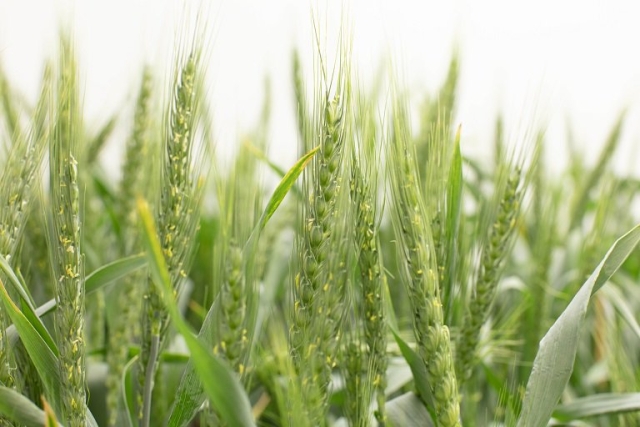Israeli researchers have identified the genes responsible for regulating the length of roots in bread wheat, which will allow wheat with longer roots to reach the water found in deeper soil layers and yield more crops in dry conditions with little precipitation. The study, published in the journal “Nature Communications”, was conducted by researchers from the University of Haifa and the University of California.
Wheat is one of the three main grains on which the world's diet is based, along with rice and corn. Wheat consumption in the world today is over 800 million tons per year, and it provides over 20% of the global consumption of calories and proteins. Almost an absolute majority, about 95% of the commercial wheat used for human consumption belongs to one species, bread wheat, and almost all of the remaining five percent belong to a second species, durum wheat.
Excited to share our study in @JXBot. Using spatiotemporal electrical resistivity tomography in the field, we found that wheat wild introgression line has deeper roots & higher water uptake under drought, leading to better gas exchange rates & grain yield. https://t.co/MybHYh97xd
— Harel Bacher (@BacherHarel) February 15, 2023
According to expert forecasts, by 2050 the demand for wheat will double, but today, not only is it not possible to increase the areas where wheat is grown, but climate change is making more areas too dry to grow wheat, which relies on rainwater irrigation. Therefore, the estimates are that if humans do not find other ways to increase the rate of wheat production, a significant shortage will be created, which could lead to a global food crisis. In light of this, one of the possible solutions for increasing wheat yields is through genetic improvement, which will increase wheat yields without increasing the cultivation areas.
In the current study published, Dr. Gilad Gabay and Prof. George Dubcovsky from the University of California, together with Prof. Fahima and doctoral student Hanchao Wang from the University of Haifa, and other researchers from various universities in the world were able to identify a gene cluster that is responsible for regulating the length of wheat roots.
Relay Adzukis beginning to nodulate, weed pressure is lower then expected. Roots are pushing for moisture as the wheat draws water during seed fill. Elongation will hopefully improve the architecture of the plant and raise the pods #happycombine pic.twitter.com/5MORunvYmD
— Kawartha Cover Crops (@stripper16) June 27, 2018
Dr. Gilad Gabay, the lead author of the study, said: "This is the first time that a gene has been found that confers resistance to drought conditions in bread wheat. In view of the importance of wheat for the nutrition of the world population on the one hand, and the global warming that is increasing more and more the areas suffering from drought and making it difficult for agricultural crops; [this is] a discovery of great importance that will allow the cultivation of wheat in more extensive climatic conditions.
"This identification is considered extremely complex, because bread wheat has a huge genome, 5 times larger than the human genome, consisting of three different subgenomes that include six copies of each chromosome"


